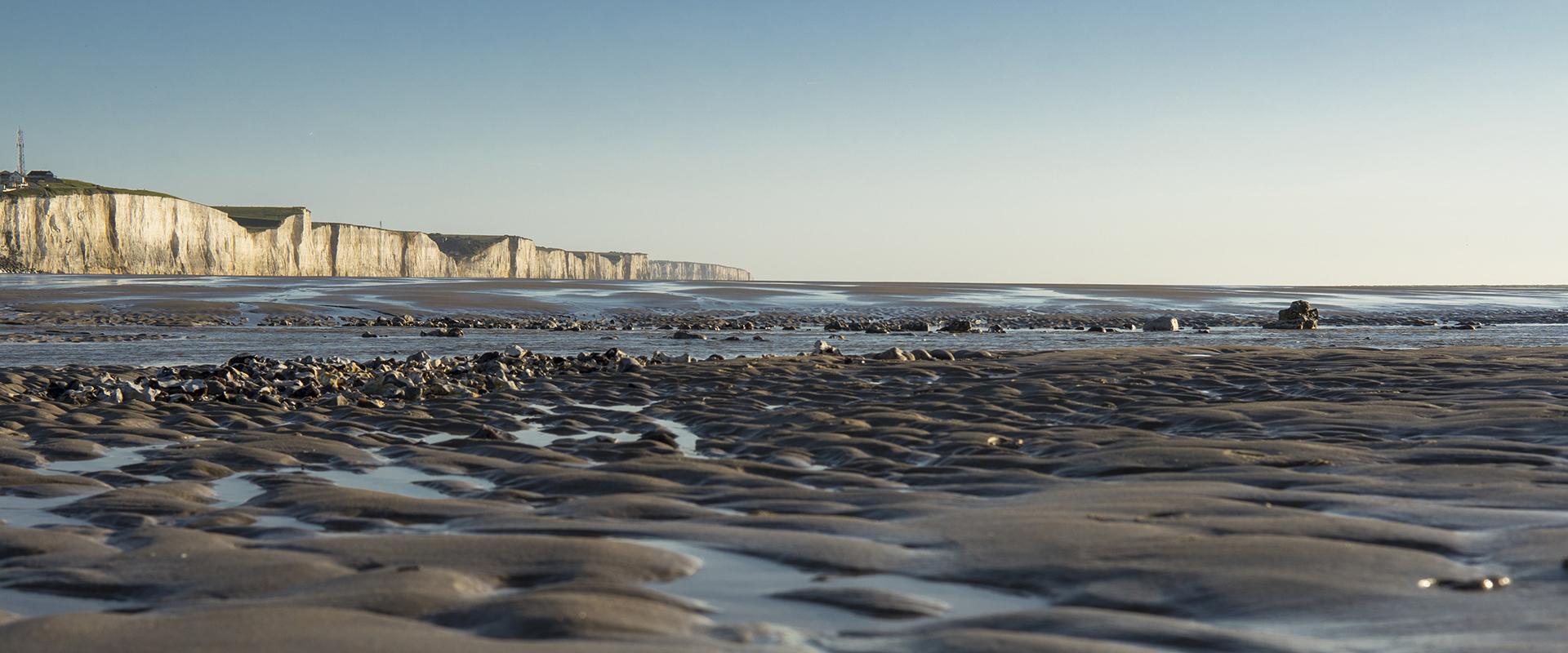
Breach in the dyke of the Lancieux polder, resulting in the polder being reconnected to the sea (Côtes-d'Armor, 2021).
© Conservatoire du littoral
Protecting and promoting the French coastline
The coastal area – where land and sea meet – is undergoing major changes as a result of climate change, rising sea level and various human activities, and these changes will continue, and may even be exacerbated in the future. With this in mind, BRGM and the Conservatoire du Littoral have teamed up to combine their knowledge and expertise in order to help manage, protect and promote the French coastline.
The initial agreement between the two partners, signed in 2015 for a period of 5 years, notably resulted in the joint development and implementation of the LIFE Adapto project (2017-2022), which advocates adaptive management of the coastline. The Conservatoire du littoral is the coordinating beneficiary of this project and BRGM the associate beneficiary.
Signed in January 2022, the new agreement sets out the fields in which the Conservatoire du littoral and BRGM will cooperate, as well as the conditions of the collaboration, notably covering the following aspects: the Adapto project, Nature-based Solutions (NBS), the national bodies responsible for the coastline management strategy and cooperation in the French Overseas Territories.

Breach in the dyke of the Lancieux polder, resulting in the polder being reconnected to the sea (Côtes-d'Armor, 2021).
© Conservatoire du littoral
Collaboration in the LIFE Adapto project (2017-2022)
This project involves ten experimental sites and aims to demonstrate the value of using naturally-occurring coastal environments (dunes, marshes, etc.) to help manage the risks linked to erosion and coastal flooding in a safe, economical and environmentally-friendly way.
Scientific collaboration aimed at studying and demonstrating the effectiveness of Nature-based Solutions (NBS)
Nature-based solutions draw on the naturally-occurring phenomena at work in coastal areas. The aim is to manage, protect or restore these phenomena in order to address certain key issues facing today's society (protecting biodiversity, managing risks, supporting primary economic activities, water management, etc.). Generally speaking, using NBSs to help manage coastlines is a fairly recent approach, which is still relatively under-exploited. Consequently, these solutions raise many scientific questions (such as, what will happen to a polder site after it has been reconnected to the sea?).
Discussions and actions conducted in conjunction with national bodies responsible for coastline management strategy
BRGM and the Conservatoire will actively coordinate their actions with various national policy-management bodies (the French national strategy for integrated coastal management, the National Network of Coastline Observatories) to promote coastline management strategies.
Cooperation in French Overseas territories
The new agreement includes the development of projects specifically geared towards overseas coastal habitats, for example mangroves.
Exchanges between the two institutions and shared training programmes
Here, the aim is to consolidate and draw on each organisation's expertise in coastal phenomena and take their approaches into account in the management of coastal areas.
National and international public and scientific expertise
The two establishments will work together to share their expertise and knowledge with organisations responsible for managing coastal areas and Government bodies.
Knowledge transfer
The two establishments will seek to share the knowledge they gather about the coastline (description of environments, risks, management solutions, etc.) in an educational, scientific and technical format aimed both at organisations responsible for managing coastal areas (Government departments, local authorities) and at the general public.
Regional partnerships
BRGM and the Conservatoire collaborate regularly through their respective regional offices (for example through the coastal observatory networks) to conduct cross-cutting surveys and coordinate work with various bodies.








